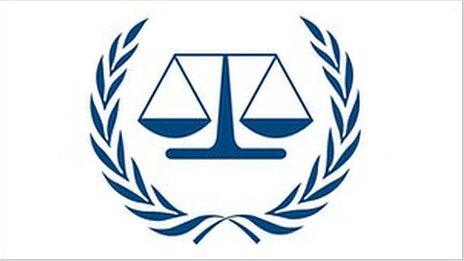Profile: Jean-Pierre Bemba, DR Congo's ex-rebel and vice-president
- Published
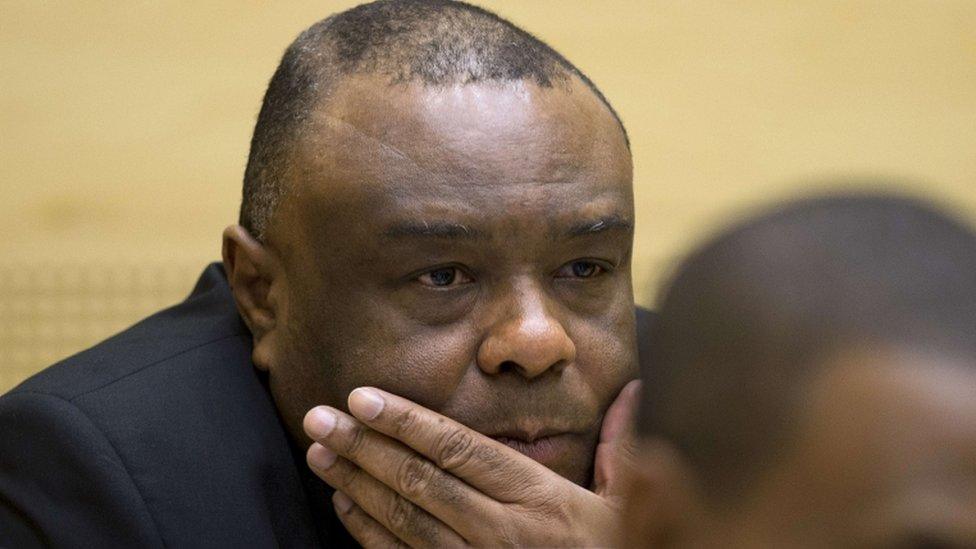
Jean-Pierre Bemba was extradited to The Hague from Belgium
Jean-Pierre Bemba had an extremely privileged childhood in one of the world's poorest countries but this did not saved him from being convicted of war crimes at the International Criminal Court (ICC) in The Hague - although that has now been overturned.
Mr Bemba spent his youth between the Belgian and Congolese capitals - Brussels and Kinshasa - and the small remote town of Gbadolite in northern Democratic Republic of Congo known as "Versailles in the Jungle".
This was the home and last refuge of the late Congolese leader Mobutu Sese Seko.
Mr Bemba's father, the successful businessman Bemba Saolona, was very close to the former dictator.
But for him business was all that really mattered.
When Laurent Kabila's rebel force overthrew Mobutu and marched into Kinshasa in May 1997, Saolona was briefly appointed a finance minister in the new regime.
Difficult relationship
Father and son, however, have not always seen eye to eye.
Mr Bemba, who at a very young age lost his mother and has had difficult relations with his father and step-mothers, explicitly criticised his father's acquaintance with Mr Kabila in his book The Choice of Freedom.
A great admirer of controversial French businessman Bernard Tapie and former Italian Prime Minister Silvio Berlusconi, the young Bemba sought other father figures.
Perhaps his greatest influence was Mobutu himself, who employed him at the age of 30 as his personal assistant in the early 1990s.

Jean-Pierre Bemba
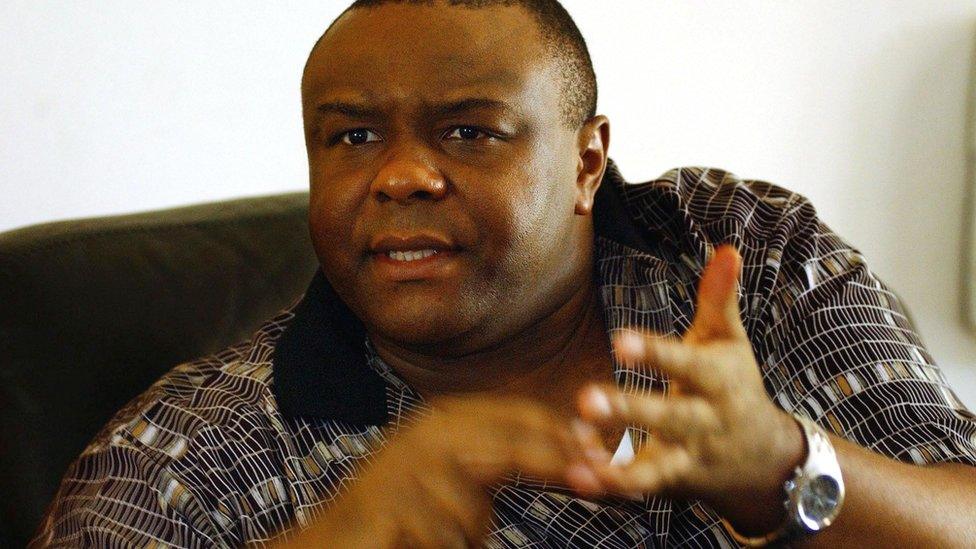
Son of famous businessman
Former assistant to Mobutu Sese Seko
1998: Helped by Uganda to form MLC rebel group
2003: Becomes vice-president under peace deal
2006: Loses run-off election to President Joseph Kabila but gets most votes in western DR Congo, including Kinshasa
2007: Flees to Belgium after clashes in Kinshasa
2008: Arrested in Brussels and handed over to ICC
2010: Trial begins
2016: Found guilty of war crimes and crimes against humanity
2016: Convicted of bribing ICC prosecution witness
2018: Conviction overturned on appeal

Another person central to his roundabout journey to becoming DR Congo's vice-president was Ugandan President Yoweri Museveni.
As the government battled Rwanda-backed rebel groups in eastern DR Congo, Mr Museveni helped Mr Bemba open up a new front.
He supplied troops, equipment and training when Mr Bemba launched his rebel group, the Movement for the Liberation of Congo (MLC), in 1998.
In only a few months, the MLC managed to capture northern DR Congo.
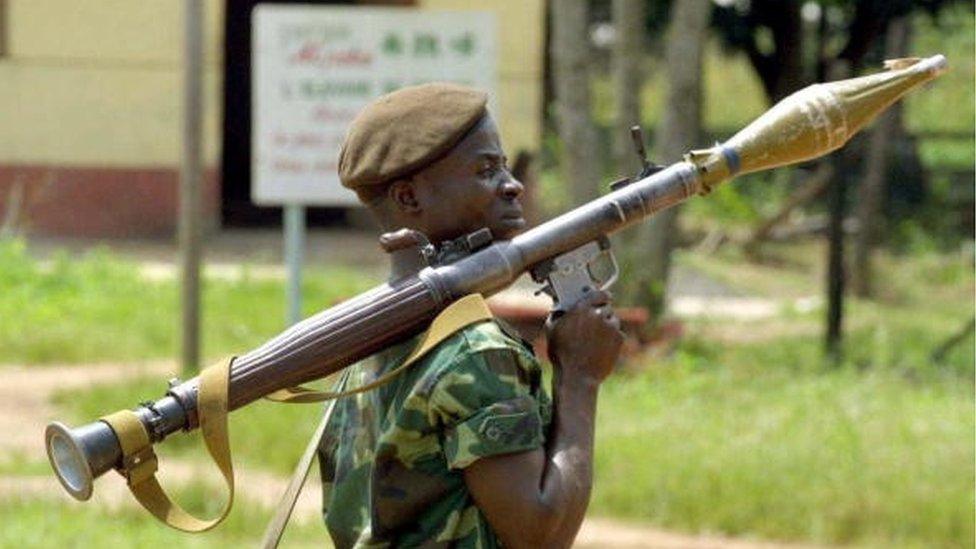
Mr Bemba led rebel MLC forces in DR Congo before signing a peace deal with the government
The military pressure he put on Mr Kabila's government eventually led to a peace deal that became the basis of a power-sharing government.
As a rebel leader, Mr Bemba was named one of four vice-presidents.
After he laid down his arms in 2003, Mr Bemba was sworn in back home as vice-president in charge of finance in the interim administration.
He became increasingly influential, gaining the support of a number of historic political figures in DR Congo, and stood for the country's presidency in 2006 - against Laurent Kabila's son, Joseph.
But he was ultimately deserted by many allies who blamed his "oversized ego" for withdrawing their support.
He managed to take the incumbent to a second round, polling especially well in western DR Congo, including the capital, Kinshasa, where many see the Swahili-speaking Kabilas as foreigners.
He claimed the run-off was rigged and was accused of refusing to disarm his militia and of unleashing violence in Kinshasa.
Mr Bemba has always denied the charges.
Reign of terror
He was then accused of treason after his bodyguards and the army clashed in Kinshasa in March 2007.
He fled to his childhood retreat of Belgium but this time it was no safe haven.
He was arrested in May 2008 in Brussels and handed over to the ICC two months later.
A characteristic Mr Bemba shares with his father the knack of making money.
He holds an MBA from a prestigious business school in Brussels and kept his economic activities running throughout the war: looking after family-owned coffee plantations and wood factories.
Former allies claim most of Mr Bemba's fortune comes from gifts from African leaders such as former Libyan strongman Muammar Gaddafi.
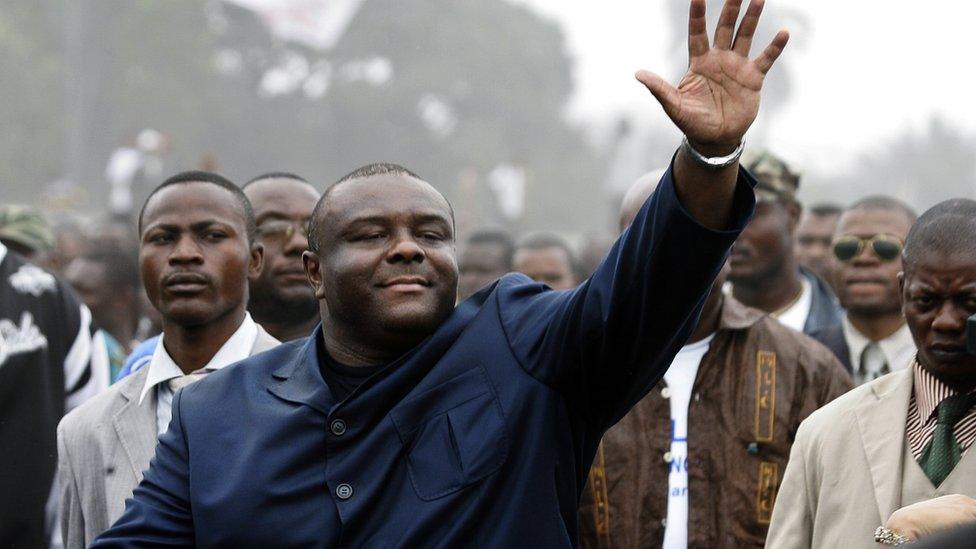
Jean Pierre Bemba won the 2006 elections in western DR Congo but lost nationwide
Whatever the source, by the end of the war, the rebel-turned-politician had accrued enough wealth to buy a helicopter and several planes, which he sometimes likes to pilot himself. He has also invested in DR Congo's aviation business.
He also became involved in external conflict, asked in 2002 by then Central African Republic Ange-Felix Patasse to put down a coup attempt.
It was the ensuing reign of terror, allegedly involving looting, civilian killings and mass rape of hundreds of women by MLC fighters, which led the ICC to file charges of war crimes and crimes against humanity against him as the group's leader.
In one case, three generations of the same family were gang-raped while their relatives were forced to watch.
His lawyers said the fighters were no longer under his command after they crossed the border.
This was initially dismissed by the judges who said he retained "effective command and control" over the troops.
He was sentenced to 18 years in jail.
His conviction marked several milestones for the ICC. It was the first time the court had focused on rape as a weapon of war, and the first time a suspect had been convicted for crimes committed by others under his command.
But the ICC overturned the conviction for war crimes and crimes against humanity in June 2018, after he had spent almost a decade in jail.
The appeals chamber, in a 3-2 majority ruling, said he could not be held responsible for the actions of his fighters.
He will not be immediately released from prison after he lost a separate appeal against a conviction of bribing witnesses to give false testimony during the trial.
- Published7 February
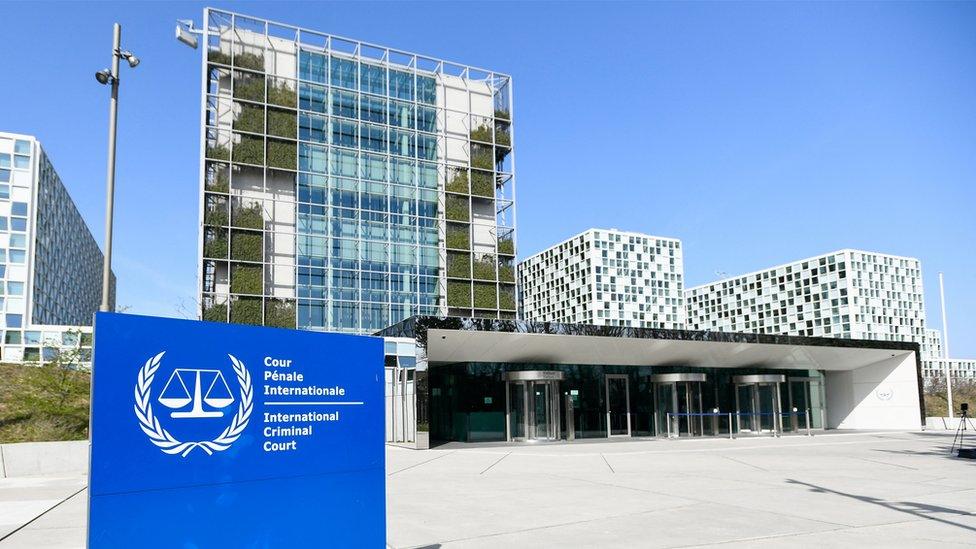
- Published31 January
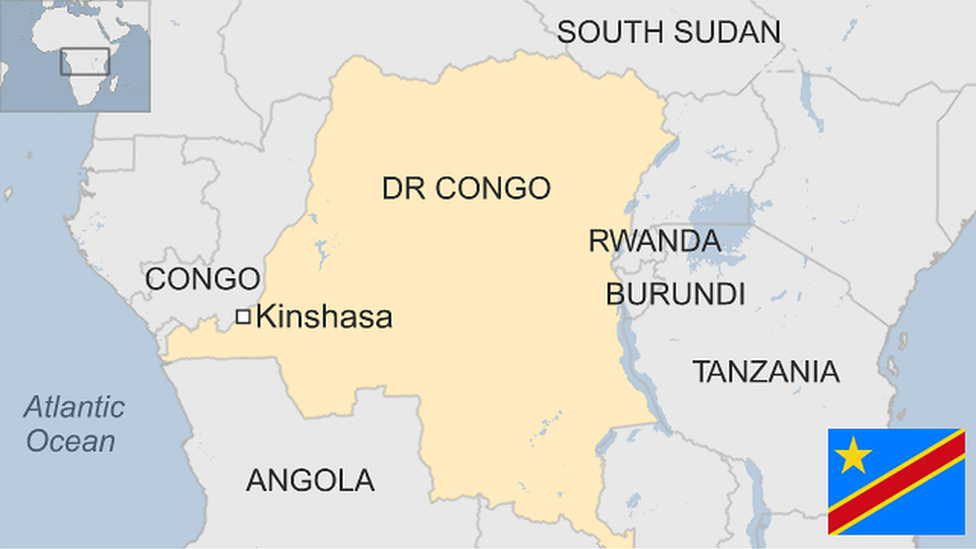
- Published14 March 2012
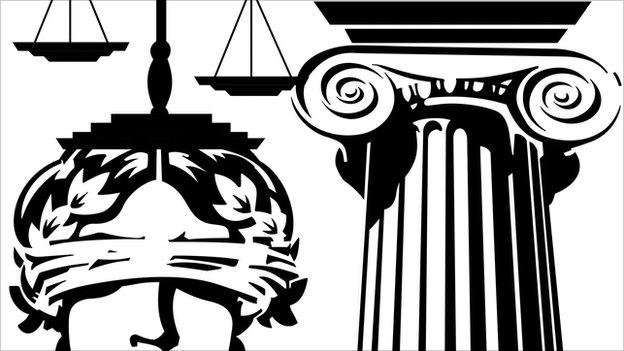
- Published8 October 2014
